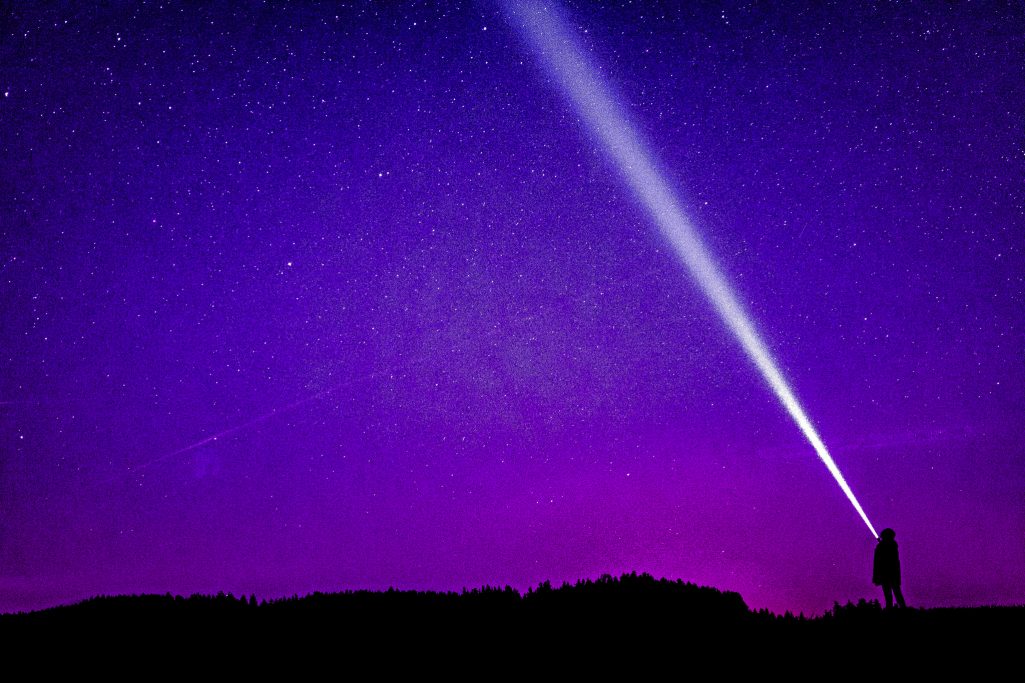If you’ve ever wondered what the meaning of life is, you’re not alone. If you came to the conclusion that the purpose of life is to spread life itself to other planets across the universe, then you’re in the good company of VCU Professor Michael Mautner – a research fellow with the Center for the Study of Biological Complexity. Early on in his studies, the intricacy and beauty of life convinced Dr. Mautner that if there was a purpose to the human existence, then it must be to secure and expand life beyond our own world. Twenty-three years ago he founded the Society for Life in Space (SOLIS) to gather like-minded individuals that support this intentional dispersing of biological life across the universe. As the field has come to be taken more seriously over the past decades SOLIS rebranded to comply with the current jargon, today calling itself the Interstellar Panspermia Society.
The term panspermia (from the ancient Greek “pan” for all and “sperma” for seed) denotes the hypothesis that life could already exist or potentially be spread throughout the universe by asteroids, comets, and other objects hurtling through space—including from stowaway microorganisms on our own satellites and spacecrafts. Dr. Mautner is one of the foremost proponents of “directed panspermia,” the idea that we humans should deliberately transport microorganisms found on Earth throughout the universe to seed new planetary systems with introduced species.
Whereas Dr. Mautner is content with securing a foothold for any biological life beyond our vulnerable planet—his website ominously notes that life as we know it “will end when the Sun ends,” other advocates of directed panspermia see it as a way to oxygenate the atmospheres of barren planets and prepare them for future human colonization. With the multimillion year timeline of such atmospheric processes and the limits of space travel, such fantasies of an intergalactic string of colonies remain the province of sci-fi; however, many critics raise non-technical concerns.


The opposition to directed panspermia currently comes in two forms: one based in religion and the other based in biodiversity. German physicist Claudius Gros who developed the Genesis Project—a plan to scatter photosynthesizing bacteria on transiently habitable planets—laments that his biggest critics claim directed panspermia represents scientists trying to play god. Other critics argue that directed panspermia could result in an unintentional genocide of whatever species may have independently arisen on other celestial bodies. To avoid controversy Dr. Mautner proposes humans “aim at newly forming solar systems, where local life could not have arisen yet.”
Although the current debate over the ethics of directed panspermia remains completely hypothetical, the technology to support such missions already exists, at least in its most nascent form. Scientists envision a compact craft filled with hearty microorganisms such as tardigrades that could be propelled through space by shooting lasers against “light sails,” a method of propulsion proven by recent space shuttle flights which harnesses the radioactive pressure exerted by sunlight on large panels of mirrors. If such technologies can be rapidly improved within our lifetimes, then two planned probes—project Starlight by NASA and Breakthrough Starshot by a Russian venture capitalist—may present humanity with its first opportunities for directed panspermia.
Since the 1960s, scientists have questioned whether the relatively quick development of biological life on Earth was itself the result of panspermia, directed or accidental. Speaking at the Origins Symposium in 2009, physicist Stephen Hawking warned the audience not to rule out such a theory stating, “Life could spread from planet to planet or from stellar system to stellar system, carried on meteors.” Lacking any proof of extraterrestrial life, let alone a possible panspermia origin story for life on Earth, Dr. Mautner argues that “our first responsibility is to secure and advance our own family of (gene/protein-based) life.” While others look for the meaning of life on our planet alone, for Dr. Mautner the success of directed panspermia would “give our human existence a cosmic purpose.”
If you’d like to join Dr. Mautner’s Interstellar Panspermia Society of scientists, students, writers, and others interested in space, they will soon be creating a Facebook page. Till then, you can enjoy a copy of his book, Seeding the Universe with Life: Securing Our Cosmological Future for free here.



